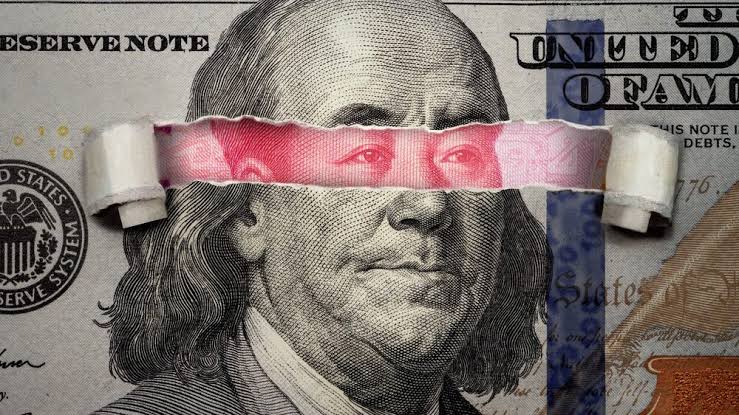Challenging the Dollar: BRICS Nations Eye De-dollarization Amid Growing Economic Influence
As the BRICS (Brazil, Russia, India, China, and South Africa) summit approaches, whispers of an economic shift are getting louder. The expansion rate of this powerful economic bloc may determine the speed at which these countries step away from US dollar systems. Currently, BRICS represents a significant 8.3% of

As the BRICS (Brazil, Russia, India, China, and South Africa) summit approaches, whispers of an economic shift are getting louder. The expansion rate of this powerful economic bloc may determine the speed at which these countries step away from US dollar systems.
Currently, BRICS represents a significant 8.3% of the global economy, covering an astounding 41.9% of the world's population. As these nations convene in South Africa, de-dollarization could be on the agenda. Notably, research from ING suggests that the growing economic might of BRICS might pose challenges to the dollar's dominant role in international trade.
In recent times, China has been vocal about its criticism of the US, accusing Washington of "weaponizing" the dollar. This critique was particularly heightened following Western sanctions on Russia after its 2022 invasion of Ukraine. Calls for moving away from the dollar have become more pronounced, with leaders like Brazilian President Luiz Inacio Lula da Silva advocating for local currency settlements.
Interestingly, there's talk of Russia leading the development of a currency union for cross-border trade among emerging nations. Should this succeed, it could lead to a depreciation of credit currencies like the US dollar. Still, conflicting reports suggest that a new BRICS currency might not be on the horizon.
China, meanwhile, is not waiting around. Its currency, the yuan, is making strides in international trade, payments, and forex transactions. For instance, Argentina settled its International Monetary Fund debt using the yuan. Furthermore, the People’s Bank of China is pushing for more international use of its currency.
De-dollarization trends are evident in central banks' international reserves. The dollar's share in global forex reserves saw a decline, reaching 58.6% in 2022, its lowest since 1995. While the yuan is gaining traction, the dollar remains an attractive option for many private investors, largely due to its higher interest rates.
Still, the US dollar holds its ground in the international bond market, leading with a 48-51% share. It's clear that while emerging economies are exploring alternatives, the US dollar's dominance isn't easily displaced.
In conclusion, as the BRICS nations continue to grow in economic strength and influence, the world watches closely. The push for de-dollarization may be gathering momentum, but the path forward remains complex and filled with challenges.




